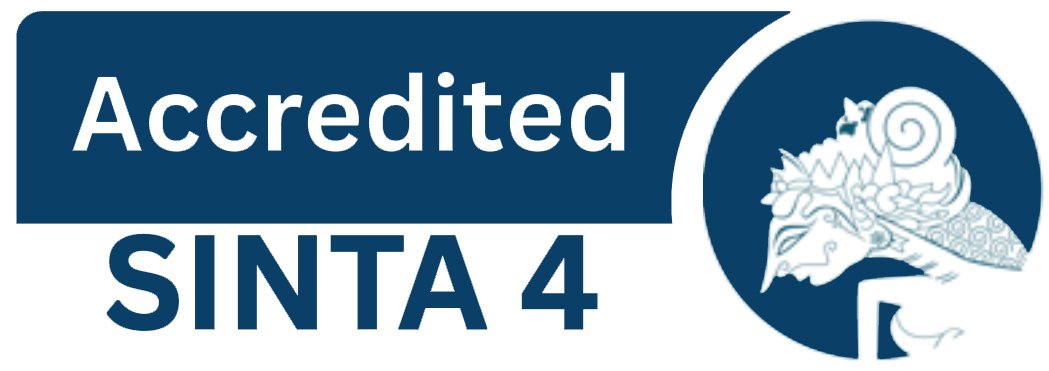PENGARUH STATUS SOSIAL EKONOMI ORANG TUA, PROKRASTINASI AKADEMIK DAN ADVERSITY QUOTIENT TERHADAP STRES AKADEMIK MAHASISWA PENDIDIKAN EKONOMI UNIVERSITAS JAMBI
DOI:
https://doi.org/10.22460/p2m.v12i1.5942Keywords:
Parents’ Socioeconomic Status, Academic Procrastination, Adversity quotient, Academic StressAbstract
This study aims to describe the direct effect of parents' socioeconomic status, academic procrastination on adversity quotient, the direct effect of parents' socioeconomic status, academic procrastination, adversity quotient on academic stress, the effect of parents' socioeconomic status on academic stress through adversity quotient, the effect of academic procrastination on academic stress through adversity quotient. This research is a quantitative study using path analysis. The subjects in this study were economics education students consisting of 4 batches, namely 2017, 2018, 2019 and 2020. The population in this study were 262 students and a sample of 158 students who were then used as respondents in this study. The instrument in this study was a questionnaire with the help of google form. The results of the data analysis obtained explain that: (1) There is a direct effect of parents' socioeconomic status on adversity quotient, (2) There is a direct effect of academic procrastination on adversity quotient, (3) There is a direct effect of parents' socioeconomic status on academic stress, (4) There is a direct effect of academic procrastination on academic stress, (5) There is a direct effect of adversity quotient on academic stress, (6) The effect of parents' socioeconomic status on academic stress through adversity quotient, (7) The effect of academic procrastination on academic stress through adversity quotient, (7) The effect of academic procrastination on academic stress through adversity quotient.
References
Desmita. (2014). Psikologi Perkembangan Peserta Didik. Bandung: PT Remaja Rosdakarya
Kustiandi, J. (2011). Beberapa kajian teori kawasan pendidikan ekonomi. Malang: PPS UM.
Napitupulu, L., Nashori, F., & Kurniawan, I. N. (2007). Pelatihan adversity intelligence untuk meningkatkan kebermaknaan hidup remaja panti asuhan. Psikologika: Jurnal Pemikiran dan Penelitian Psikologi, 12(23), 43-56.
NURMI, J. E. (1989). Planning, motivation, and evaluation in orientation to the future: A latent structure analysis. Scandinavian journal of psychology, 30(1), 64-71.
Parvathy, U., & Praseeda, M. (2014). Relationship between adversity quotient and academic problems among student teachers. Journal of Humanities and Social Science, 19(11), 23-26.
Putri, S. A., Zulharman, Z., & Firdaus, F. (2016). Hubungan Adversity Quotient dengan Tingkat Stres Akademik pada Dokter Muda Fakultas Kedokteran Universitas Riau (Doctoral dissertation, Riau University).
Soraya, F. (2020). Pengaruh penyesuaian diri, prokrastinasi akademik, dukungan sosial, dan faktor demografi terhadap stres akademik pada mahasiswa UIN Syarif Hidayatullah Jakarta (Bachelor's thesis, Fakultas Psikologi UIN Syarif Hidayatullah Jakarta).
Stoltz, Paul G. (2007). Adversity Quotient faktor paling penting dalam meraih sukses. Ahli Bahasa: T. Hermaya. Jakarta: PT Gramedia Widiasarana Indonesia
Sugihartono. (2007). Psikologi Pendidikan. Yogyakarta: UNY Pers.
Triyono, T., & Khairi, A. M. (2019). Prokrastinasi akademik siswa SMA (dampak psikologis dan solusi pemecahannya dalam perspektif psikologi pendidikan islam). Jurnal al-qalam: jurnal kependidikan, 19(2), 57-74.
Yumba, Wycliffe. (2008). Academic Stress: a Case of Undergraduate Students. Germany Psychology Journal.
Zahra, Y., & Hernawati, N. (2015). Prokrastinasi akademik menghambat peningkatan prestasi akademik remaja di wilayah perdesaan. Jurnal Ilmu Keluarga & Konsumen, 8(3), 163-172.



















